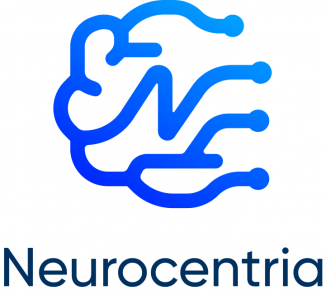New Research Study Reveals Critical Role of Magnesium in Regulating Brain Synapses and Cognition
WALNUT CREEK, Calif., May 30, 2024 (Newswire.com) - Neurocentria Inc., a privately held late-stage biotechnology company developing novel therapies for Alzheimer’s disease, Attention Deficit Hyperactivity Disorder (ADHD), Major Depressive Disorder (MDD) and other neurodegenerative and neuropsychiatric disorders, has published a novel research paper identifying magnesium’s key role in synaptic and cognition regulation.
Magnesium, an essential mineral, plays a vital role in brain function and cognitive health, according to groundbreaking research published in Nature Communications. The study, conducted by neuroscientists from Neurocentria and Tsinghua University, provides novel insights into how magnesium levels in the brain control the organization and strength of synaptic connections between neurons.
The findings show that high levels of intracellular magnesium promote a large number of weak synaptic configurations optimal for encoding new information and learning. Conversely, low magnesium levels lead to fewer but stronger synaptic configurations better suited for memory storage. Notably, aging brains tend to have synapses organized in this low-magnesium, strong-synaptic configuration, impairing the ability to learn and form new memories.
"Our study not only deepens the understanding of magnesium's critical roles in normal brain function but also bolsters our belief that intracellular magnesium could be a revolutionary new drug target for treating neurological disorders," said Dr. Guosong Liu, Neurocentria's co-founder and CEO.
Previous research highlighted magnesium's importance for brain function — specifically, cognition and emotional regulation. Half the world's population has a magnesium deficiency, which worsens with age. Maintaining normal or elevated brain magnesium levels may significantly slow age-related cognitive decline and potentially prevent or treat diseases impacting cognitive function.
Neurocentria is developing NRCT-101SR, designed to promote magnesium delivery into the brain’s synaptic terminals. NRCT-101SR has been shown to improve learning and memory and emotional regulation in multiple clinical trials conducted in older adults with mild cognitive impairment, Alzheimer’s disease and other neurological and neuropsychiatric disorders.
"We are currently conducting multiple late-stage clinical trials to test the benefits of elevating brain magnesium for treating ADHD, depression, and other conditions," added Dr. Liu.
To learn more, visit neurocentria.com.
About Neurocentria
Neurocentria is a late-stage biotechnology company dedicated to discovering and developing novel treatments for neurodegenerative and neuropsychiatric disorders, including Alzheimer’s disease, ADHD, and depression. Since 2004, Neurocentria’s team has been innovating breakthrough therapies to address the pathophysiology of these disorders, prevent their progression or even reverse their course, reduce symptoms and improve performance and quality of life for those in need.
Forward-Looking Statement
This release contains ”forward-looking statements” made pursuant to the safe harbor provisions of the Private Securities Litigation Reform Act of 1995. These statements are typically preceded by words such as ”believes,” “expects,” “anticipates,” “intends,” ”will,” “may,” “should,” or similar expressions. These forward-looking statements reflect management's current knowledge, assumptions, judgment and expectations regarding future performance or events. Although management believes that the expectations reflected in such statements are reasonable, they give no assurance that such expectations will prove to be correct or that those goals will be achieved, and you should be aware that actual results could differ materially from those contained in the forward-looking statements. Forward-looking statements are subject to a number of risks and uncertainties, including, but not limited to, our ability to successfully complete research and further development and commercialization of our drug candidates, including NRCT-101SR, in current or future indications; the uncertainties inherent in clinical testing and accruing patients for clinical trials; the effects of the outbreak of COVID-19 on our business and results of operations; the availability, cost, delivery and quality of clinical materials produced by our own manufacturing facility or supplied by contract manufacturers, who may be our sole source of supply; the timing, cost and uncertainty of obtaining regulatory approvals; the failure of the market for our programs to continue to develop; our ability to protect our intellectual property; the loss of any executive officers or key personnel or consultants; competition; changes in the regulatory landscape or the imposition of regulations that affect our products; our ability to continue to obtain capital to meet our long-term liquidity needs on acceptable terms, or at all, including the additional capital that will be necessary to complete the clinical trials that we have initiated or plan to initiate.
All forward-looking statements are expressly qualified in their entirety by this cautionary notice. You are cautioned not to place undue reliance on any forward-looking statements, which speak only as of the date of this release. We have no obligation, and expressly disclaim any obligation, to update, revise or correct any of the forward-looking statements, whether as a result of new information, future events or otherwise.
For further information, contact Guy Bar-Klein at gbar-klein@neurocentria.com.
Source: Neurocentria, Inc.
